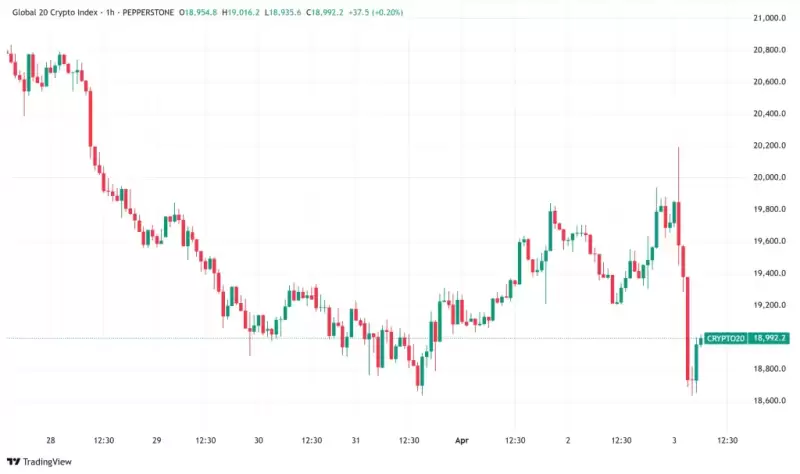 |
|
 |
|
 |
|
 |
|
 |
|
 |
|
 |
|
 |
|
 |
|
 |
|
 |
|
 |
|
 |
|
 |
|
 |
|
Cryptocurrency News Articles
The Unseen Impacts of Ethereum 2.0: More Than Just a Crypto Upgrade
Nov 28, 2024 at 03:36 am
The rollout of Ethereum 2.0 marks a pivotal moment in the evolution of blockchain technology, but its implications stretch far beyond financial transactions and smart contract enhancements. Although the technological leap is remarkable, what is less discussed is how Ethereum 2.0 influences global communities and individual lifestyles in unexpected ways.

As Ethereum 2.0 continues to roll out, its impacts are felt not only in the realm of cryptocurrency but also in broader aspects of society. Here's a closer look at some of these often-unseen implications:
Education and Public Services:
With the proliferation of decentralized applications (dApps), Ethereum's upgrade is set to reshape not just financial landscapes but also education and public service delivery. Blockchain-based credentials could standardize educational qualifications, making it easier for students to access global opportunities.
Imagine a future where students across continents have equal access to learning resources authenticated by dApps, minimizing the educational divide. Public services, ranging from housing to healthcare, could become more transparent and efficient, ensuring that resources are allocated to those most in need.
Data Ownership and Privacy:
Ethereum 2.0 also brings to the forefront crucial discussions regarding data ownership and privacy. As decentralized platforms become mainstream, individuals could gain unprecedented control over their personal data, a prospect that challenges existing norms around data management.
In a decentralized world, who truly owns your data, and what new legal challenges might arise? While the empowerment of individuals to manage their data is a significant advantage, there are concerns about potential misuse or the responsibility individuals will bear in safeguarding their information.
Community and Governance:
On a community level, Ethereum 2.0 may impact social structures through decentralized governance models. Such models could redefine how communities self-organize, largely reducing dependency on centralized authorities.
This shift could lead to more equitable resource distribution and empower local governance, potentially reducing corruption. However, decentralized governance could also fragment communities, leading to conflicts or inconsistencies in policy implementation.
Economic Game Changer or Illusion?:
Is Ethereum 2.0 truly the economic equalizer it claims to be? While the transition to proof-of-stake reduces entry barriers for participants and aims to democratize economic opportunities, token volatility remains a concern.
Critics argue that while access expands, the inherent risks and unpredictable market behaviors could disadvantage uninformed or vulnerable populations. Moreover, financial gains are often linked to technological literacy, which not everyone possesses equally.
Geopolitical Tug of War:
On a larger scale, countries must decide how to adapt or regulate in response to this evolving technology. Ethereum's influence might lead some nations to innovate fiscally or technologically, ensuring they remain competitive.
Conversely, others might tighten regulations, fearing economic instability or loss of control over their currency systems. This could lead to a fragmented geopolitical landscape where cryptocurrency adoption varies significantly from one region to another.
For further insights into the blockchain and crypto world, visit Coindesk.
Disclaimer:info@kdj.com
The information provided is not trading advice. kdj.com does not assume any responsibility for any investments made based on the information provided in this article. Cryptocurrencies are highly volatile and it is highly recommended that you invest with caution after thorough research!
If you believe that the content used on this website infringes your copyright, please contact us immediately (info@kdj.com) and we will delete it promptly.
-

-

-

-

-

-

-

-

- Daily Crypto Signals: Bitcoin Tumbles from $88.5K, XRP Awaits Ripple Effects of New Trump Tariffs
- Apr 03, 2025 at 10:30 am
- The cryptocurrency market displayed a mixed landscape on April 2nd, 2025, as Bitcoin, Ethereum, XRP, and other altcoins grappled with the ripple effects of newly announced US tariffs
-




























































